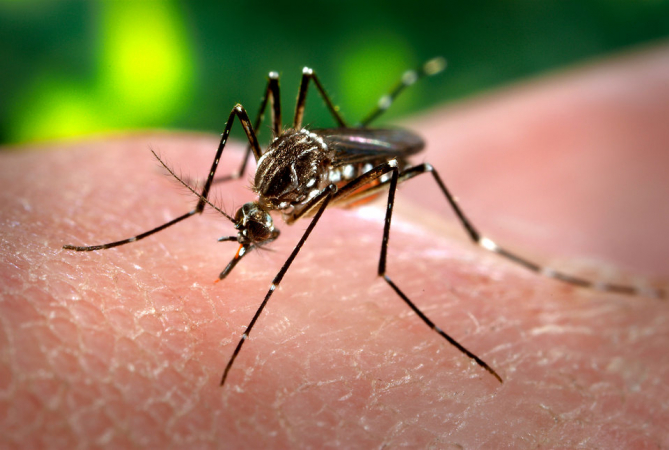
With Thailand facing its worst dengue outbreak in half a decade, people of all ages have been advised to protect themselves from mosquito bites and control the Aedes aegypti mosquito population.
The Department of Disease Control (DDC) has assured that the authorities are fully prepared to cope with the dengue outbreak, but the department’s Vector Borne Diseases Bureau director Dr Cheewanan Lertpiriyasuwat cautioned that the current dengue outbreak situation was worrisome.
She said everyone should protect themselves from mosquito bites to avoid being infected with dengue and slow down the spread of the disease.
According to the recent situation report of the Bureau, in just the first half of this year 40,402 dengue cases had been reported in Thailand, 1.6 times higher than in the same period of 2018.
Due to the significant rise in dengue cases this year, the Bureau estimates that the prevalence of dengue in Thailand has jumped from last year’s figure of 38.6 persons per 100,000 population to 61.16 persons per 100,000 population.

The Northeast was found to have the highest number of dengue cases in the country at 17,679, while Ubon Ratchathani province had the most serious dengue outbreak, with 1,944 patients under observation during June and a disease prevalence rate of 104.16 persons per 100,000 population.
It was also found that the mortality rate from dengue was higher this year with 58 people losing their lives so far after being infected by the mosquito-borne disease. This is a sharp rise from 33 deaths in all of 2018.
“Considering the current rate of infection, we are faced with one of the most severe dengue outbreaks in recent years. The number of dengue cases in the first six months of this year is already higher than the numbers reported in an entire year during the last half a decade,” Cheewanan said.
“Thailand alone is not affected by a surge in dengue cases. Neighbouring countries such as Laos, Cambodia, and Myanmar are also experiencing a rapid spread of dengue at a record-breaking rate as well,” she said.
She added that though the DDC was well prepared and had implemented mitigation measures to control the spread, these measures may not be enough to prevent a worsening of the situation during the rainy season. She said the involvement of the public is necessary to help the authorities suppress the outbreak.
“The best dengue prevention methods that everyone is encouraged to follow are to avoid mosquito bites and eliminate spawning grounds of Aedes aegypti mosquitoes. This is the most effective way to keep dengue outbreak under control,” she said.
Dr Mukda Wangworawong, a dengue expert at the Queen Sirikit National Institute of Child Health, said the sharp rise in dengue infection this year was not totally unexpected for the Thai medical sector and authorities, as dengue outbreaks normally recur once every two years.
However, Mukda revealed that the current round of dengue outbreak recurrence is of greater concern than previous ones, because this time the strain spreading the dengue virus is DENV-2 or dengue virus type 2, which is more lethal than other dengue strains, especially among adults.
“Though statistics show youths aged between 5 and 14 as most vulnerable to the infection, the death rate among adults is higher and could reach up to 60 per cent, as the health of this population group tended to be poorer due to other non-communicable diseases,” she said.
“Therefore, people should take this health risk seriously and follow the measures suggested by the DDC to protect themselves from mosquitoes and dengue,” Mukda said.


